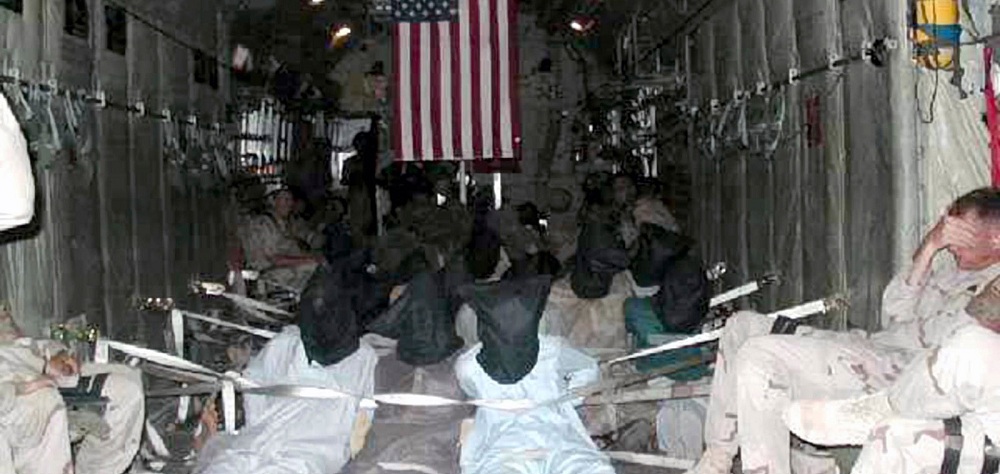Alwaght- Iraq plans to sue the US in Swedish and German courts for violating its sovereignty and use of uranium munitions in the war.
Hatef al-Rakabi, the advisor to the Iraqi parliament’s Commission on Foreign Affairs, talked about the intention to file a suit against the US for “breaching the Iraqi national sovereignty and using uranium ammunition against the Iraqi people.”
Al-Rakabi added that filing a suit in the Swedish and German courts will guarantee international interpellation of the US without delay.
The Iraqi officials explained that recording the affection of hundreds of Iraqi people in only a month bears witness to the damage the American occupying forces inflicted on Iraq.
He asked the Iraqi health ministry to make its estimations and publish a detailed report on the casualties caused by the US bombardment of various Iraqi regions.
Continuous American crimes in Iraq
In explaining the US crimes in Iraq, a couple of points should be taken into account. First, according to documents, while Iraq posed no threat to the US, the US leaders and President George W. Bush designed the plan of the Iraq invasion. They made false justifications to invade and occupy the country.
Second, there is a remarkable amount of evidence about the American war crimes in Iraq, including killing the civilians, breaching the war rules, mistreating the prisoners of war, looting public and private assets, and destructing the cities and villages without military requirement.
Killing the citizens, majorly women and children, under the ruse of mixing them up for legitimate military targets, air raids without early warning, airstrikes on civil gatherings like wedding ceremonies and funeral services, using unsophisticated bombs, shooting in the air from close distances, and all in all, carrying out the unjustified and inappropriate attacks are only part of the US war crimes in Iraq.
As a consequence of the US invasion, Iraq lost 60 percent of water distribution infrastructure, 75 percent of healthcare infrastructure, and 80 percent of its power infrastructure.
According to official reports, about 1.5 million Iraqis were killed during the Iraqi military campaign and also during the occupation period.
16 years after the war on Iraq, the Arab country is still a victim of silent US crimes against the children because of the use of nuclear weapons in the bombing.
Ahmad Mukhlef Hamad, the head of information at Fallujah hospital in Al-Anbar province west of Iraq, once said that 16 years after the war, every year thousands of children are born with deformities in Fallujah because of the American use of banned weapons. He held that white phosphorus and other fatal weapons the US army used in the Iraq war have their destructive influences to date.
Hamad noted that so far official figures on the Fallujah casualties during the US war of 2003 have not surfaced.
He said that inborn and genetic infirmities showed themselves over 5 years after the war, and each year thousands of Iraqi children were born with deformities due to the US use of depleted uranium and white phosphorus during the war in the city between 2004 and 2005.
Iraqi media in October 2016 reported that according to disclosed dossiers, the US military during occupation of Iraq in 2003 used depleted uranium ammunitions in its operations.
The Integrated Regional Information Network, a Nairobi-based institute, at the time gained access to new documents about the US violation of the international laws not published before.
The documents were reports and analyses at George Washington University’s disposal since 2003 whose results were kept classified.
The documents assert that the US bombed easy targets like headquarters, cars, and trucks using A-10 bombers at least 116 times with depleted uranium bombs.
Impacts of Iraq complaint on the American military presence
This is not the first time the American war crimes are addressed in a court. Along with investigating the country’s war crimes in Iraq by German and Swedish courts, the International Criminal Court is addressing the US military’s war crimes in Afghanistan. ICC chief Fatou Bensouda recently revealed threats by the US against her for the probe. On Monday, the US imposed a travel ban on her in a display of resolve to block the investigation.
Despite the US bullying, the top Iraqi lawmaker’s determination to sue the US for its war crimes gives away escalating Iraqi-American tensions that heightened in the past months.
Last winter, the Iraqi parliament approved the foreign forces expulsion law. The lawmakers are pushing Prime Minister Mustafa al-Kadhimi to implement the bill.
At the same time, the plan to prosecute the US for war crimes, which would very likely gain support from many lawmakers, will put more pressure on Washington for pullout should it succeed, and perhaps it can push forward the case of the US exit from Iraq.



























